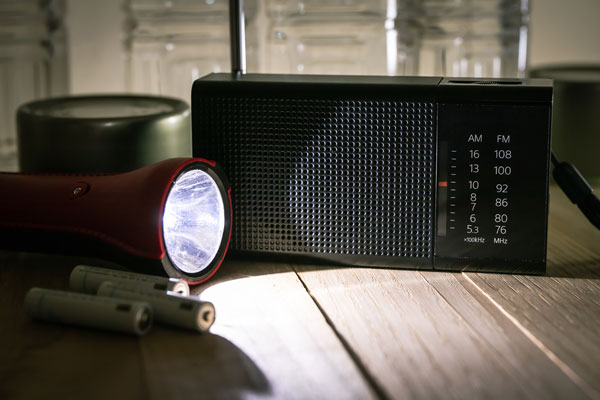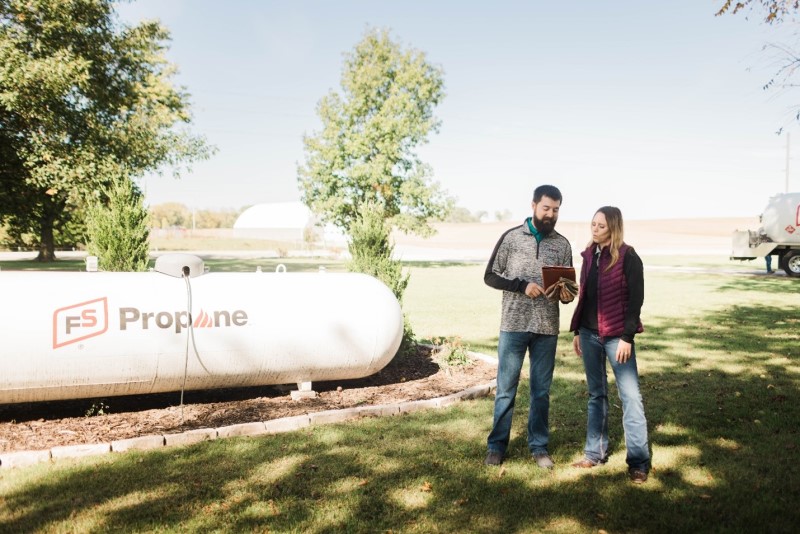Thunderstorms can pose a serious threat to people and property in all parts of the country. In the U.S., over 100,000 thunderstorms occur each year. These storms have high winds, hail, and tornadoes that may cause power outages, fires, and flooding.
Thunderstorms are dangerous because of the lightning produced. Lightning is responsible for over 80 fatalities and 300 injuries per year in the United States.
If your home uses propane, there are a few simple steps you can take to keep your family safe and avoid potential dangers.
1. Create an emergency preparedness plan and review it with everyone in your family.
Post a list with contact information for your propane retailer and emergency services (such as your fire department). Compile instructions for turning off propane, electricity, and water. Contact a service technician to shut off your propane. They will inspect your propane system to make sure it meets all safety regulations prior to turning it back on.
2. Consider installing uL-listed propane gas detectors and carbon monoxide detectors.
These detectors provide you with an additional measure of security. Be sure to follow the instructions by the manufacturer regarding installation, location, and maintenance.
3. Take safe shelter if you can hear thunder during a storm.
The storm is close enough for lightning to strike if you can hear thunder outside. Take shelter in a safe place immediately.
Metal objects such as propane tanks and equipment, tractors, and telephone lines can conduct electricity. Keep your distance from heavy objects.
If you are unable to get to a safe dwelling, find a low-lying, open place away from trees, poles, or metal objects. Make sure the place you choose is not subject to flooding.
4. Shut off gas if flooding occurs.
Turn off the main gas supply valve on your propane tank, if it is safe to do so. Turn the valve to the right (clockwise) to close it. Also, it’s a good idea to turn off the gas supply valves located near individual indoor appliances. You may have to evacuate your property or move to a higher level within your home.
5. Immediately act when a tornado is approaching.
If you are inside your home or a building, go to the lowest level possible such as a basement or a storm cellar. If there is no basement, go to the center of an interior room on the lowest level. Avoid staying in a mobile home, trailer, or vehicle during a tornado. Immediately seek shelter in a sturdy building or storm shelter.
6. Check the entire area for downed power lines, damaged gas lines, or damage to your propane tank. Only do this after the storm passes and it is safe to do so.
High winds and hail can move, shift, or damage gas lines and tanks. Immediately call your local utility company or propane retailer if any of these hazards exist. Do not attempt repairs yourself.
Select to use flashlights when it is dark, avoid candles.

7. Never use outdoor propane appliances indoors or in enclosed areas, particularly during a power outage.
This can result in carbon monoxide poisoning or death. These include such appliances as outdoor portable heaters, barbecue grills, and portable generators. Only use appliances indoors designed and approved for indoor use. Be sure not to store, place, or use propane cylinders indoors or in enclosed areas such as a basement, garage, shed, or tent.
8. Inspect your propane appliances for water or other damage, if it is safe to do so.
Electric components on appliances exposed to water can create a fire hazard. Never turn on a light switch, use any power source, or inspect your household appliances while standing in water. This can result in a fatal electric injury.
9. Schedule a time for a qualified service technician to perform a complete inspection of your propane system.
A professional needs to inspect your propane appliances, equipment, or vehicles after it has been under water. If you suspect water damage, call for inspection to ensure safety. To turn gas supply back on, ensure a professional is present.
Never operate appliances, equipment, or vehicles, until your system has passed inspection by a qualified service technician. Do not attempt repairs yourself.

10. Exercise sound judgment.
Your preparedness during thunderstorms and other severe weather events will help avoid additional dangers to your family and home. Stay calm; use radios, television, and telephones to stay informed and connected. If any questions arise, contact your FS Propane Specialist or local fire department.
Contact your local FS Propane Specialist for additional information on preparing for thunderstorms and other severe weather conditions.